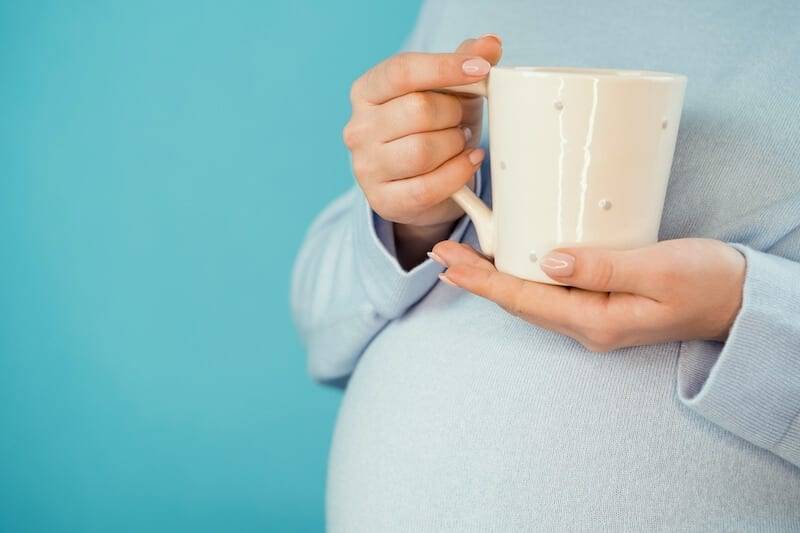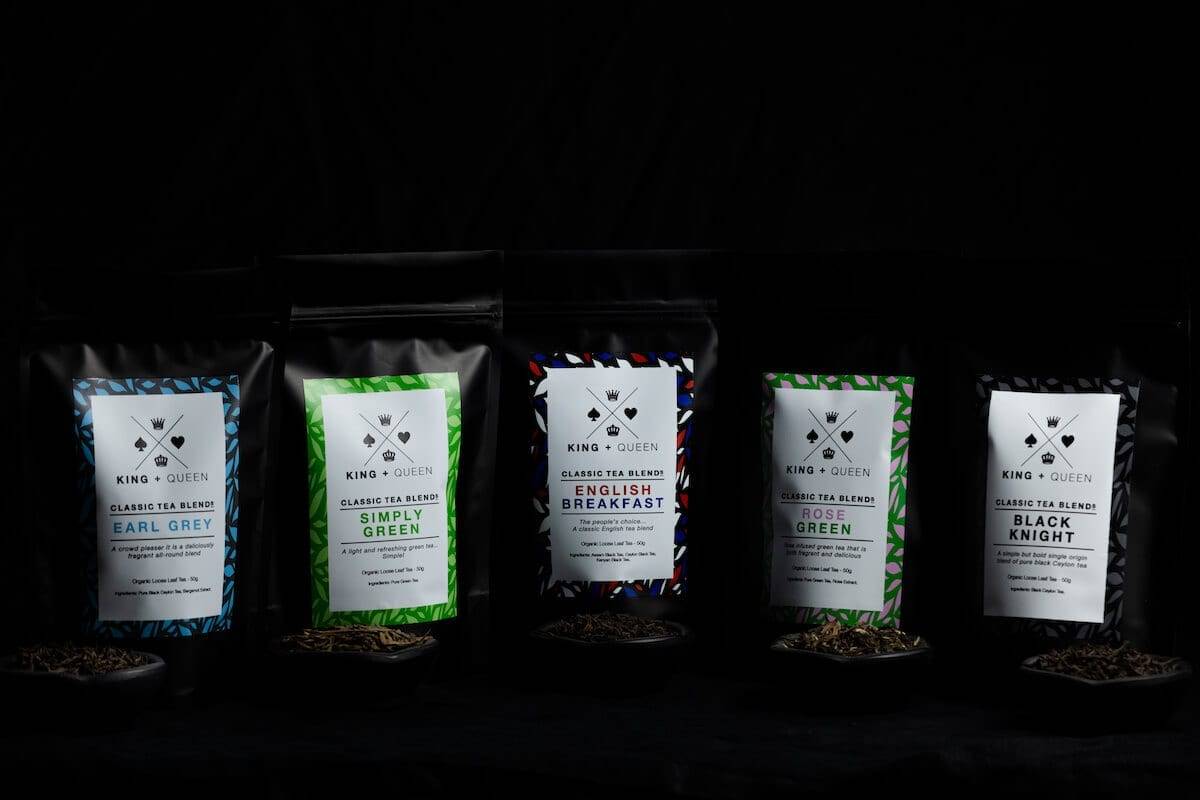** Note please always consult with your GP, Naturopath or Medical Professional before making decisions on anything you ingest**
Pregnancy is a sensitive time for women. Expectant mothers should look after the food and beverages that they consume not only for themselves but also for the safety of their child.
Pregnant tea lovers often wonder whether it's safe to drink tea or not. While some kinds of tea are allowed, it is critical to note that there are certain ingredients to avoid.
Tea for pregnstancy can be risky. However, powered by the knowledge of this article, you will be able to make an informed decision while choosing the right kind of tea for you.
Types of Tea
Generally, teas can be broken down into two categories depending on their ingredients. There are caffeinated ones and herbal ones.
Caffeinated Tea
Caffeinated teas are also called "real tea" because they all come from the same type of plant (Camellia sinensis). Variations of real tea are produced by modifying the methods of tea leaf production. Examples of these variations are black tea, green tea, and oolong tea.
Caffeine is a natural stimulant and should be avoided during pregnancy. It can easily pass through the placental barrier from the mother to the child. It's harmful to your baby because their liver is not yet mature for caffeine digestion. It can also raise your blood pressure and your heart rate, can cause restlessness, and elevate your anxiety.
Although high amounts of caffeine won't lead to congenital disabilities, it will put you at high risk for miscarriage or having a baby with premature weight or will make you experience difficulty in childbirth.
Real tea contains considerably less amount of caffeine than coffee. However, the suggested amount of caffeine is not more than 100mg per day to avoid miscarriage. What may be a small amount of tea to you may be dangerous to your baby, so always take caution.
Herbal Tea
Taking herbal medicine like herbal tea is a popular health regimen across the globe. Many pregnant women drink herbal tea for various purposes. The health benefit claims of herbal tea include having easier labour, increased relaxation, and reduced morning sickness, to name a few.
Herbal tea refers to tea that is made from the different parts of several plants (leaves, flowers, roots, etc.) except for Camellia sinensis. And because of that, it's caffeine-free and an excellent substitute for your morning coffee! But before you rejoice, beware. Herbal does not automatically mean that it's safe for you.
These kinds of tea are decaffeinated, but specific herbal ingredients may still react with your medication. If you're taking meds, it's essential to consult your physician first before taking any herbal tea to avoid complications.
Ingredients to Avoid
Take great precaution with ingredients that can put you and your baby at risk. Before brewing a hot cup of tea, always check whether it contains the following ingredients or not:
- Caffeinated / Real tea- Green tea, Black tea, White tea, Oolong tea, Matcha, Chai
- Chamomile tea - Large amounts of chamomile tea for pregnancy is said to be dangerous to your baby's health due to the presence of anti-inflammatory agents. High amounts can reduce blood flow towards the heart of your baby. You will also be at risk of having a preterm delivery with a shortened length of your newly born and decreased birth weight. Despite the adverse precautions, chamomile can also be beneficial to you in low amounts. It is used to treat nausea, and it shares many other benefits similar to that of the peppermint tea for pregnancy.
- Motherwort tea- Can cause menstrual bleeding, miscarriage, premature labour, and congenital disabilities
- Lovage tea- Can cause menstrual bleeding, miscarriage, and premature labour
- Frankincense tea- Large amounts can lead to miscarriage, menstrual bleeding, and early labour
Ingredients With Benefits
It's best to avoid having tea in the first trimester of your pregnancy. After which, you can explore having tea with these ingredients that are possibly safe for your consumption:
- Peppermint tea - This tea is well-loved for its minty flavour and aroma. It is commonly used for relieving nausea, vomiting, and gas pains. Peppermint relaxes the stomach muscles, helping you relieve your upset stomach. It's also a good source of vitamin C which promotes the production of collagen.
- Red raspberry leaf tea - This wonderful-tasting tea is said to help you ease your labour by toning your uterine muscles. When your uterus is strengthened, your labour time can be reduced by a few minutes. It's recommended to start taking this at your 32nd week of pregnancy.
- Ginger root tea- Ginger is said to combat nausea and vomiting that's usually brought by morning sickness. It aids in digestion too, and it can relieve body pains which are very common during pregnancy.
- Lemon balm tea- Lemon balm can help you stay calm by relieving your stress, anxiety, and insomnia. It's also believed to fight pregnancy-related nausea.
- Dandelion root tea- Dandelion is high in vitamin A, iron, calcium, and potassium. It is believed to nourish the liver, reduce water weight and enema, increase urine output, reduce your risk for urinary tract infection (UTI), help with constipation.
Conclusion
There's no denying that a warm cup of tea provides comfort, which is why many expectant mothers continue to be tea lovers.
Tea is a widely consumed beverage, whether it's herbal or non-herbal (caffeinated). It's an abundant source of vitamins, minerals, and antioxidants. Although several pregnant women drink tea for various purposes, there are still some ingredients to avoid like the caffeinated ones and high amounts of chamomile tea, for instance.
With the help of this guide, pregnant women can continue to enjoy having tea breaks without guilt.
Always remember not to drink tea in high doses to prevent miscarriages and other unwanted complications during pregnancy. You can still have it in moderation.
Only buy tea from reputable brands, so you are guaranteed that it is safe and clean from contaminations like pesticide residues, lead, and arsenic.
And last but not least, it's best to consult with your doctor first before taking any herbal beverages.


